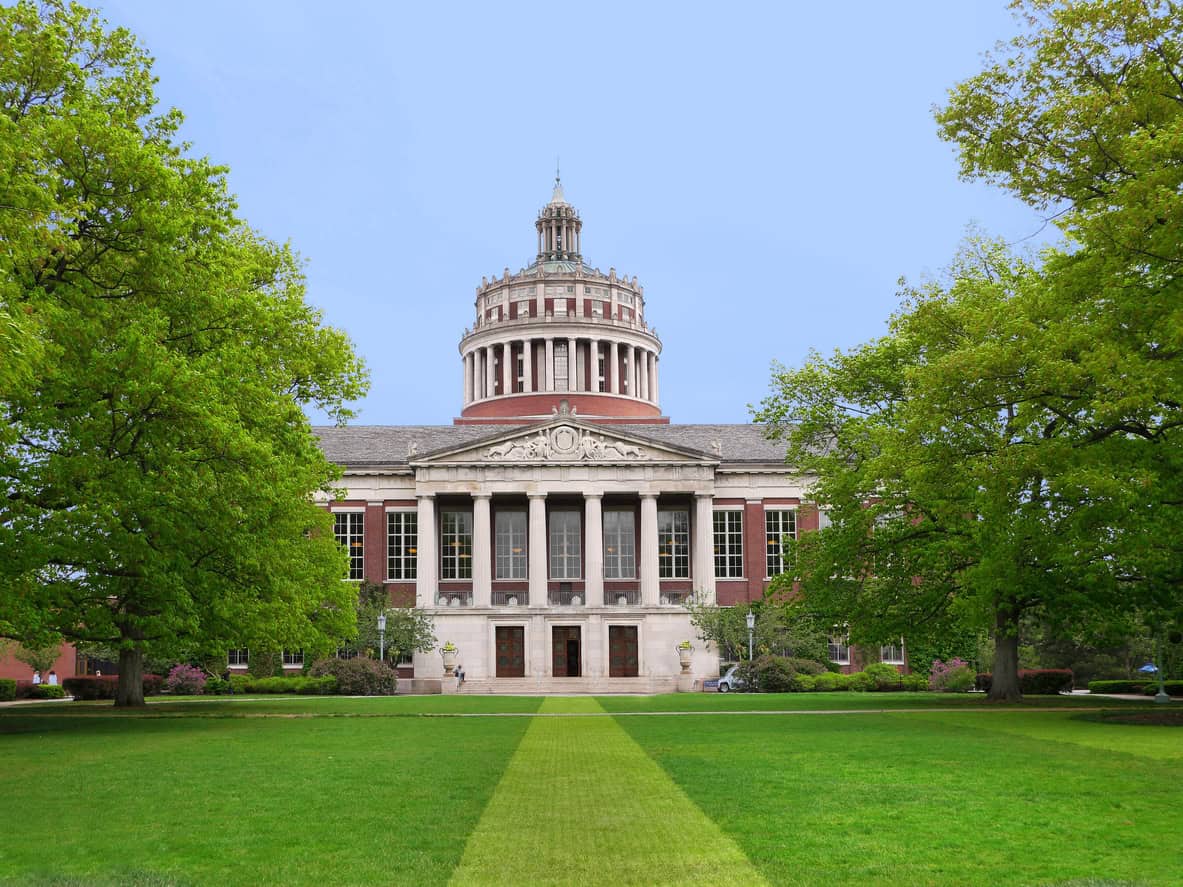The WUN, which the University of Rochester has been an active member of since 2012, is a consortium comprising 24 global universities from 6 continents. It serves to facilitate interdisciplinary research groups, overseas research visits, and various events, seminars, and conferences.
The discussions at this year’s General Meeting went far beyond academic topics, addressing pressing global issues like climate change, public health, and economic disparities.
These discussions reaffirmed the unique position that institutions of higher education hold as connectors across geographical and cultural divides, as well as catalysts for positive global change.
In such international forums, institutions of higher education actively contribute to a larger dialogue on global challenges. The strategic importance of aligning our research and innovative projects with global priorities has never been clearer.
Our faculty and students now extend their roles beyond generating, imparting and receiving knowledge; they engage in interconnected collaborations that span continents and cultures, addressing complex global challenges through a combination of academic and applied approaches.
An encouraging example of the increasing internationalisation of higher education is the recent overhaul of India’s educational framework through the National Education Policy (NEP). This policy reflects a shift toward a more globally engaged educational system and calls for the involvement of higher education institutions outside of India to collaborate with India in scaling its higher education system.
Such engagement will not only bring more higher education institutions to India, but will also familiarise individuals with the country’s opportunities and challenges. In light of India’s burgeoning youth population, the NEP demonstrates a positivistic policy toward growth through education.
The University of Rochester is at the forefront of the global trend towards international engagement through education diplomacy. We actively pursue robust international partnerships and engagement, leveraging our research capabilities to engage in over 100 partnerships with institutions in more than 30 countries.
These collaborations serve as vital conduits for sharing innovations and best practices across continents, enhancing our global education and mobility pathways, and significantly contributing to our cultural diversity and campus climate.
We boast the third highest percentage of international students among all U.S. universities according to US News; we recognise that excellence in scholarship and problem-solving requires a multitude of voices, perspectives, experiences, and expertise.
Education diplomacy entails not just looking outward but also looking inward
Jane Gatewood, University of Rochester
Education diplomacy entails not just looking outward but also looking inward: providing adequate, appropriate, and dynamic resources to support a diverse university community is paramount. Our campus prepares students not only for the world they will live and work in after graduation, but also to be leaders in shaping this world.
Our commitment to global collaboration also involves a broad spectrum of stakeholders, including policymakers, private sector leaders, and community groups.
A recent highlight of our global commitment was the establishment of the Global Engagement Awards, which reflect the interconnected nature of our world and the importance of robust collaborations.
This year, the awards were presented to Mayor Nathalie Appéré of Rennes, France, and Mayor Malik Evans of Rochester, New York, US. These sister cities have been instrumental in expanding collaborations between their respective higher education institutions. The awards ceremony recognized these leaders as champions of global engagement, underscoring the critical role that civic leaders play in fostering international educational partnerships.
Reflecting on this year’s WUN meeting in South Africa, it’s clear that the path forward in the arena of higher education involves more than simply understanding challenges; it demands active engagement through our roles as leaders, problem solvers, and bridge-makers. This approach to education diplomacy has the potential to transform not only educational outcomes but also societal structures at large.
The interconnected challenges we face require an interconnected response. As we continue to strengthen our global engagements, we’re reminded that the essence of education diplomacy lies in its ability to bridge divides—be they intellectual, cultural, or physical. It’s about more than international collaboration; it’s about preparing our global citizenry to face the future together, equipped with understanding and respect.
About the author: Dr. Jane Gatewood, the University of Rochester’s vice provost for global engagement, is an innovative leader with a 17-year career in global engagement within higher education and expertise in global research partnerships, academic mobility, and economic development. As a Fulbright-Nehru scholar in India, she has significantly contributed to the global discourse on international education. Her commitment extends even further through leadership roles in NAFSA and a position on the Board of Directors for AIEA. Dr. Gatewood has been sought out to serve on in-country consulting and assessment teams for NGOs and has been invited by foreign ministries, governments, and the U.S. Department of State to participate in programs that foster bi-national educational development and mutual understanding.





